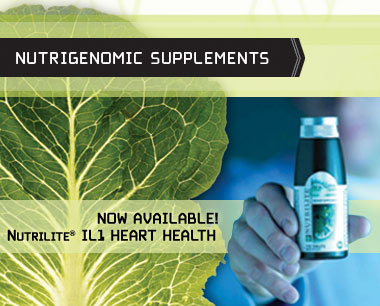Nutrigenomics, your genome’s desire
Do you think your genome should predict what to eat? Nutrigenomics is an interesting subfield of genomics and human nutrition.
Ok, what does it mean?
With all of the high-tech tests, they search for genomic differences, gene damages in you, then they can help what to eat. It’s important because like that you have less chance to get some kind of diseases. It should be a crucial part of health monitoring in the future. You could avoid getting colon or stomach cancer, inflammation of the gallbladder, etc.
The European Nutrigenomics Organisation (NuGO) says:
Genome damage rate is affected by inherited defects in genes coding for DNA repair, cell cycle checkpoints, and antioxidant enzymes it is becoming increasingly evident that such defects may be acquired due to deficiency in cofactors required for DNA synthesis and repair enzymes and as a result of silencing of such genes due to altered genome methylation.
An ultimate goal of this field of study is to define the optimal daily dietary intake levels and upper safety limits for each micro- and macro-nutrient using validated genome damage biomarkers. Sounds great?
A recent medicalnewstoday.com article says:
In the USA there are claims you can make your children more intelligent by tailoring their diet according to their genetic make-up. There is also the ‘DNA diet’ which claims you can lose weight and tone up, and even live longer by following advice based on analysis of your DNA. These tests are available over the internet so there’s nothing to stop the British public from buying them also.
“Nutrigenomics is an emerging new field which could potentially transform our view of nutrition. The work of Dr Paulo Saukko and her team at Exeter, is extremely topical coming at a time when we are bombarded by mixed messages about implication of our diet and lifestyle.”
That’s why I’ve asked an expert in naturopathy to give me an interview. I’m waiting for the answer…
Additional links:








Don’t you think that they’re pushing in a little bit too far with the genetics/genomics thing? I mean, they are trying to use it explain everything, really! Everything isn’t just in the genes. The environment has such a huge influence on us all, doesn’t it?
And completely out of subject, you should check this new science online magazine.
First: as a clinical geneticist to be, I’d say you’re exaggerating. 🙂 BTW, I see your point and agree a bit. The environment has a large impact on our health and the diseases, but the main part are coded in our DNA. You can’t describe everything with the genes and the genetics, but we should give much more attention to our genome than before.
Second: thanks for the link, I love that site and added it to my links. 🙂
However, my mum – who’s a statistician – did point out something rather interesting. I was reading an article from ScienceDaily about how genetics could help predict whether a person may become a murderer or that sort of individual. I thought it was totally stupid actually.
And that’s when my mum came in. She said that the geneticist may have found a gene, which say, dictates the impulsiveness of an individual. The probability of the latter to be one of those sort of people is hence increased.
The example taken is pretty simple and completely shit, if taken too seriously. I hope you’re getting my point though.
I understand you. But these kind of attributes are almost always identified by some genes and mainly the enviromental effect. You can get a good chance for high IQ from your parents if your education won’t be appropriate.
So I don’t believe in these genes of aggressivity, homosexuality and so on. There can be genetic risk factors, but in these cases, the envriomental effect is the most important.
My helix was very sore yesterday. I now realize it was a micronutrient problem.
Whew! Thanks for the info.
Rob
Interesting topic. The whole field of nutrient-genome interaction is a relatively emergent one but in my view will ultimately settle many of the important and long-standing controversies on issues of nature vs nurture causes of genetic disease. The best example I can think of that has very positive clinical outcomes of is the modification of the mental retardation associated with PKU by dietary restriction. Many of these children now have normal IQs. In my area of interest my colleagues and I have recently reversed the UV-sensitive phenotype of XPA cells in culture by a moderate doses of folic acid. We don’t really know what is going yet at the detailed molecular level but the effect is very dramatic. All we can say with some certainty at this point is that we have reversed a serious genetic defect in DNA repair with a simple nutritional supplement. It would be nice if this translated to a treatment for at least some forms of XP so that these children could go out in the sun with lowered risk of severe sunburning and developing skin cancers.
It’s very interesting what you’re writing. Could you please show me a publication on the subject?